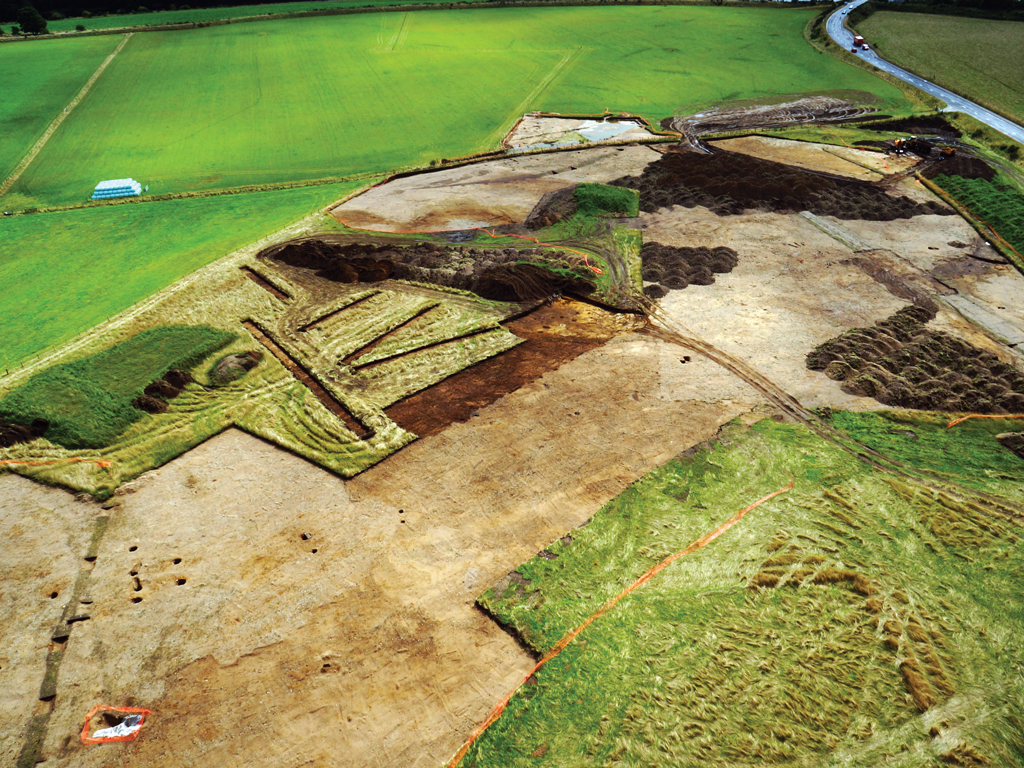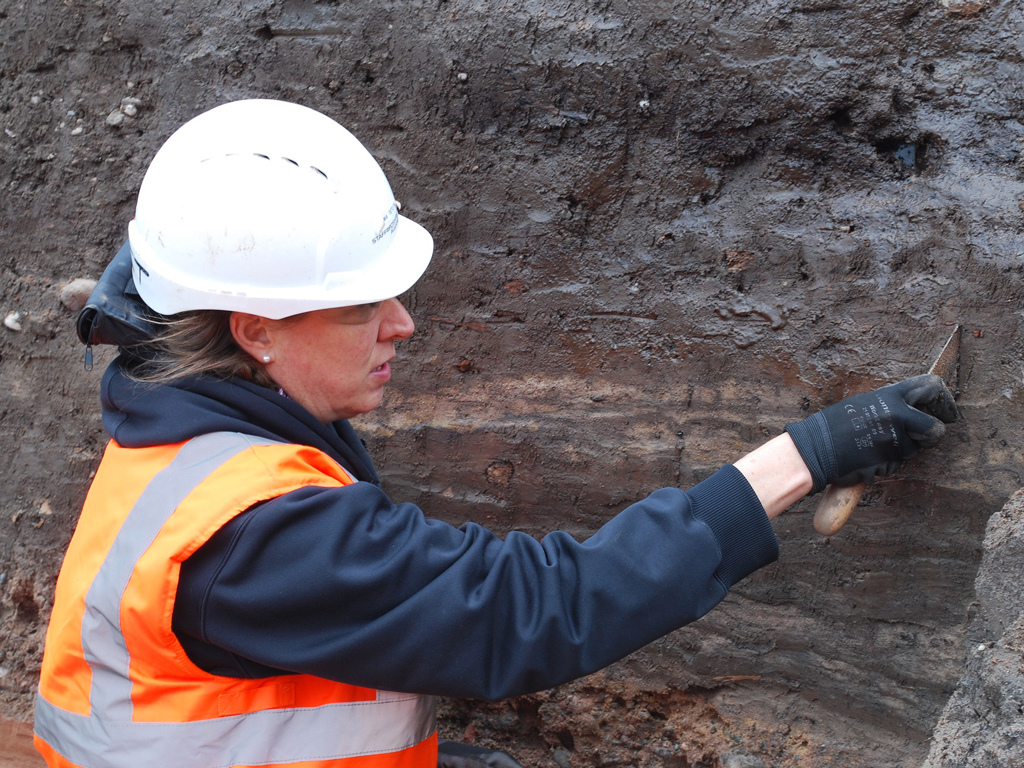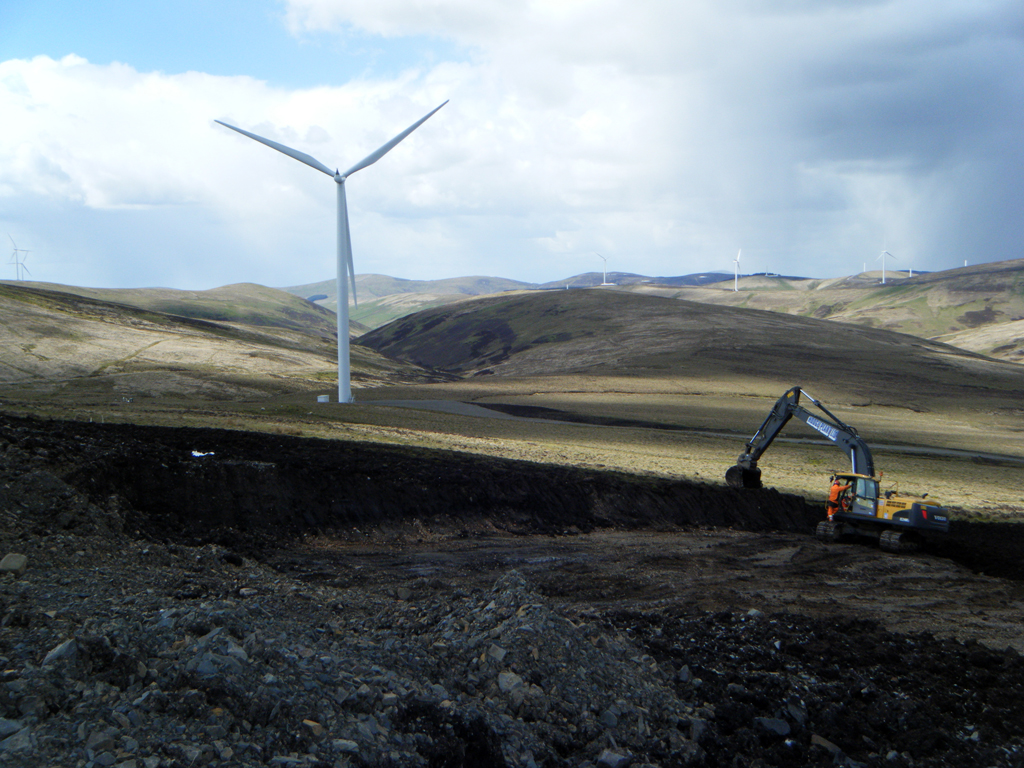
The construction of large wind farms and other major infrastructure projects has seen the emergence of a new service in archaeology – the Archaeological Clerk of Works (ACoW). This role is often specified as a condition attached to planning consent.

The construction of large wind farms and other major infrastructure projects has seen the emergence of a new service in archaeology – the Archaeological Clerk of Works (ACoW). This role is often specified as a condition attached to planning consent.



On a busy construction project with multiple sub-contractors, the resident Archaeological Clerk of Works can be indispensable, joining a team of Environmental and Ecological Clerks of Works advising the construction project management team. Headland has been at the forefront of developing this new service to the construction sector.
The ACoW is ultimately responsible for advising the client on mitigation of the impacts of the development on the archaeological resource. This might include avoidance, micro-siting, design alternatives or preservation through excavation and recording. To achieve this, they need to liaise with all relevant bodies and individuals, including the developer, design teams, site contractors, Local Planning Authorities and stakeholders. Other duties include advising on fencing off of known sites, inputting to site inductions, providing toolbox talks to contractors, co-ordinating archaeological staff carrying out monitoring and excavations, preparing method statements and producing regular reports on progress to the client and for planning authorities.
Because the ACoW is resident on site, and has deep knowledge of the development, issues can be examined and practical decisions taken quickly, before delays escalate. The positive working relationship between the ACow and the main contractor, designers, local authority curators and other stakeholders, can significantly increase the chances of delivering the project on time and on budget.
The end of the construction phase does not always mean the end of a client’s responsibilities. Our ACoWs regularly prepare Contractors’ Guidelines and Risk Registers for operational phases when the resident advisory teams are no longer required on site. These outline the ongoing responsibilities of the developer and provide practical guidance of procedures to both avoid archaeological sites and deal with unexpected discoveries.
ACoWs are now being regularly requested on large developments such as wind farms and road schemes, where the complexity of the development requires proactive input and decisive action. Given the wide ranging responsibilities of this demanding role, only our most experienced archaeologists are selected to be ACoWs.
Headland is currently providing two teams of ACoWs on Clyde Wind Farm Extension and Aberdeen Western Peripheral Route to assist during the construction phase of the projects, having been involved in earlier advance works. Our continuity on both these projects has proved invaluable to the Design and Construction teams.
Kirsty Dingwall
Magnar Dalland
Jürgen van Wessel
Russel Coleman
Alistair Webb
Luke Craddock-Bennett
Mike Kimber
Andy Boucher
Eddie Bailey
Tony Walsh
Kirsty Dingwall
Candice Hatherley
Sam Harrison
Kate Bain
Emma Jeffrey